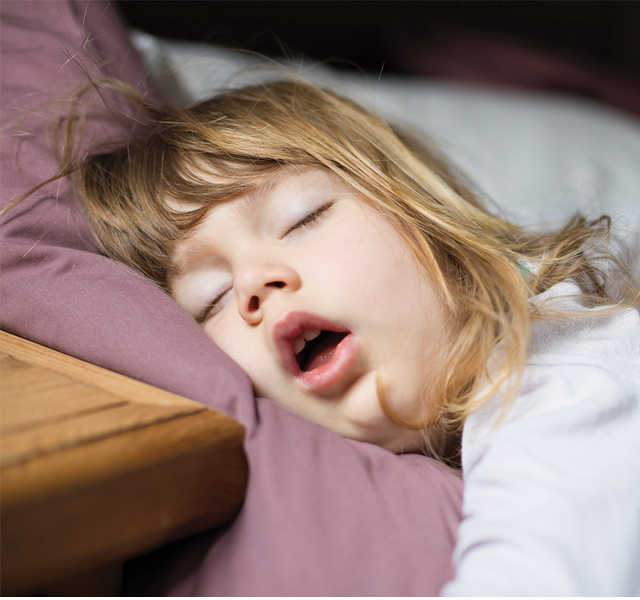The Cardiologist's Wife: Establish Healthy Sleep Habits for the School Year
The Cardiologist's Wife: Establish Healthy Sleep Habits for the School Year
by Lisa Tedder
Bedtime struggles are a common occurrence for families, as one in four parents report difficulty getting their young children to bed at night. Young children may experience fear of the dark, bad dreams or difficulty falling asleep alone. Unfortunately, many parents fall into the trap of using bedtime strategies that may worsen sleep issues in the long run. Establishing a consistent bedtime routine and making sure your child gets enough quality sleep is important for brain function, physical development and ability to regulate emotions and behavior.
Children who have poor sleep habits are more likely to be overweight, have trouble learning in school or have behavioral problems. Consistency on the part of the parents is key to establishing good sleep habits.
Studies show that families who have bedtime battles are less likely to have a bedtime routine and are more likely to use videos or the TV to encourage their children to stay in bed. They are also more likely to stay with the child until they fall asleep or allow the child to sleep with them. None of these strategies teach the child how to relax, manage their anxieties and fall asleep on their own.
For very young children, going to bed alone can seem isolating and a bit scary. A predictable bedtime routine provides a sense of security and comfort, allowing the child to relax and get sleepy. Having one-on-one time with a parent to bathe, brush teeth, cuddle or read a bedtime story promotes emotional bonding while creating a positive atmosphere. You can end the evening with a kiss goodnight and turn out the lights. Leaving the room while your child is sleepy but awake teaches them to fall asleep on their own, meaning they are less likely to panic if they wake up later and find you gone.
For reference, toddlers (ages 1-2) need 11 to 14 hours of sleep, preschoolers (ages 3-5) need 10 to 13 hours of sleep, and those age 6 to 13 need around 9 to 11 hours.
Hopefully you started a bedtime routine from the day you brought your infant home, but if not, it’s not too late to start. It may take a few days to a couple of weeks, but don’t give up. Here are a few tips for getting your child to bed.
• We all sleep better when we have the same bedtime and waking time each day.
• Use the bed only for sleeping, not playtime or other activities, so their brain associates the bed with sleep.
• Keep the bedroom cool, quiet and comfortable. A small nightlight is OK, but the room should be dark.
• Children need time to wind down before bedtime. This is the time to put away toys, turn off the TV or other devices, take a bath, read, etc.
• At least one hour before bedtime, turn off video games, phones and the TV. Blue light from screens can affect sleep.
• Avoid giving caffeinated beverages after noon.
• The ideal time to go to bed is when the child is drowsy but still awake.
• Give your child a security blanket, stuffed animal or doll to help them feel safe when you leave.
• Getting plenty of exercise and sunlight during the day helps children sleep better at night.
• Keep the bedtime routine short, around half an hour to 45 minutes.
• Stick to the routine on weekends and during the summer, vacations and other breaks. A bedtime routine needs to be consistent to be effective. This is true for adults, as well.
• Make sure to give your child your undivided attention during the bedtime routine. Put your phone away and use this time to make them feel loved and connected.
• Always follow the routine exactly. This gives the child comfort knowing exactly what to expect.
• Set firm boundaries. Let them make choices such as which pajamas they want to wear or which book to read, not which parts of the routine to skip. Not knowing what to expect because the rules keep changing can produce anxiety in a child, resulting in difficulty at bedtime.
• Sitting together and cuddling while reading a short story causes the feel-good hormone oxytocin to be released, which helps the child to relax.
• Keeping things positive at bedtime helps to create a stress-free environment, conducive to sleep. Now is not the time to yell or discuss earlier bad behavior.
• Don’t watch scary movies or read scary books in the evening. They may fuel a child’s imagination.
Sleep deprivation extends into the teen years, with 66% of teens getting less than seven hours of sleep per night. The majority of teens have at least one electronic device in their room at night. The blue light from these devices delays the release of melatonin, making it hard to sleep. Blue light can even penetrate closed eyes. Just as with younger children, sleep deprivation in teens leads to difficulty concentrating, moodiness, apathy, trouble staying awake in class and decreased learning. Teens who don’t get enough sleep are more likely to be overweight and suffer from depression. To help teens get better sleep, have a set bedtime and leave electronics outside the bedroom. Avoid exercise or sports within two hours of bedtime. Use a white noise machine or a fan.
School starts soon. Help your children make the most of their education by establishing a bedtime routine and healthier sleep habits for the whole family.







